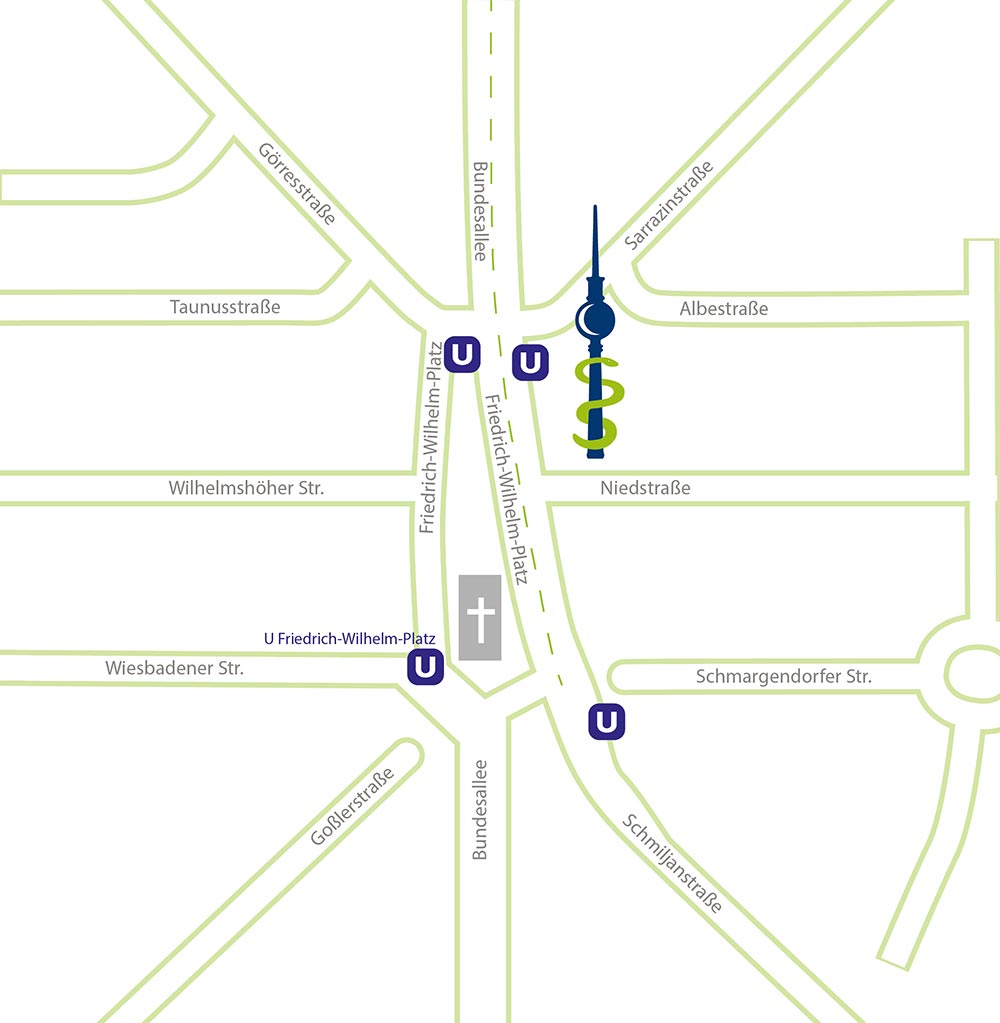This post is also available in:
 Deutsch (German)
Deutsch (German)
Sleep Medicine
We care about your sleep,
because waking up refreshed improves the quality of life.
We are a private practice, meaning public health insurances to not cover the costs for a treatment by our doctors and therapists.
Insomnia
(Issues with falling asleep and sleeping through the night)
Issues with falling asleep and sleeping through the night affect about every third patient of a primary care physician. Reasons for this, among other things, are the increasing nervous tension of many people in their professional and private life, disturbances of the day/night rhythm, alcohol, medicines, late-night activities, and much more. Most affected people often suffer agonizing wake phases in bed for months to years, trying their best to escape the vicious cycle of night-time sleeplessness and chronic fatigue during the day. Once the vicious cycle of the sleep disorder is in motion, it is often very difficult to get rid of it on your own.
Because, just like with anxiety and pain, sleep disorders tend to spread. The worry about the next night (‘I hope I don’t stay up all night again’) leads to increased internal tension, which in turn prevents falling and/or staying asleep. Other treatable causes for sleep disorders include shiftwork, restless leg syndrome, nightmares, and many others. In addition, back, neck or shoulder pain are common causes of sleep disorders.
Sleep disorders are sometimes persistent, but are often treatable using professional diagnostics and treatment.
Therapy for insomnia
Since every case of insomnia is unique, every treatment option is unique. To remedy tormenting insomnia, there are several different approaches and methods (which can also be combined) to achieve an effective and beneficial improvement in your sleep disorder.
If a physical illness is excluded as a cause, the treatment options include lifestyle changes, light therapy, various relaxation techniques such as progressive muscle relaxation, autogenic training, massages, behavioural therapy, and temporary treatment with sleep-inducing or even ‘sleep-repairing’ substances. We use natural substances as well as tried and tested drugs that are carefully selected by the doctor.
In any case, insomnia is not an incurable disorder or disease that has to be accepted without recourse. Even though the treatment of some sleep disorders takes time, a successful therapy is almost always possible!
Feel free to contact us!
Snoring & sleep apnoea
50% of all men and 40% of women over 50 years snore. Snoring often not only disturbs the partnership, but very often causes the snorer nocturnal stress as well, as the body has to fight against constricted airways. Daytime sleepiness, difficulty concentrating, low moods, weight gain, erectile dysfunction and high blood pressure can be the result. More than one third of the snorers experience nocturnal respiratory distress (apnoea), lasting from a few seconds to a few minutes, often accompanied by a drop in oxygen in the blood. Oxygen deficiency sets off an alarm signal to the body, which then sets all systems to ‘danger’: Blood pressure, heart rate, muscle tension, wakefulness, adrenaline and cortisol release increase significantly and prevent or disturb deep sleep, dream phase sleep and nocturnal rest. The next morning we are tired, worn-out, listless and often already exhausted at breakfast. In the course of the day, when we are required to concentrate and perform well, sometimes we can only stay awake with difficulty; we make mistakes, are irritated and possibly even cause serious accidents.
Especially the cardiovascular system is extremely sensitive to snoring and nocturnal oxygen deficiency conditions. 80% of all people affected by sleep apnoea have high blood pressure. Sleep apnoea syndrome dramatically increases the risk of strokes, heart attacks, depression, impotence and other serious illnesses.
Even snoring in itself, without breathing interruption, often not only disturbs the partnership, but can already make the person seriously ill, as nocturnal constricted airways cause significant ‘night-time stress’ with serious long-term consequences for the organism. There are several ways to completely eliminate or at least alleviate snoring and sleep apnoea.
In the case of real sleep apnoea, nocturnal respiratory aid therapy must often be performed and a so-called ‘sleep mask’ must be fitted. These devices and masks (called APAP or CPAP therapy) are a bit intimidating at first, but are really helpful and healing.
Often snoring and apnoea disappear after a single night with the device and the next morning you feel refreshed, rested and fit for the first time in a long time. Most importantly, CPAP/APAP therapy significantly reduces the effects of sleep apnoea such as high blood pressure, daytime sleepiness, impotence, depression, heart attack and stroke, making it a very important and rewarding treatment option. With pure snoring and in mild cases of sleep apnoea, a so-called mandibular advancement splint can often be fitted successfully. They are adapted by specialized dentists after we have been asked to perform the sleep examination.
In any case, snoring (in conjunction with restless sleep) and sleep apnoea should be clarified by a sleep specialist.
Treatment of
nocturnal respiratory disorders
Even snoring in itself, without breathing interruption, often not only disturbs the partnership, but can already make the person seriously ill, as nocturnal constricted airways cause significant ‘night-time stress’ with serious long-term consequences for the organism. There are several ways to completely eliminate or at least alleviate snoring and sleep apnoea.
In cases of real sleep apnoea, nocturnal respiratory aid therapy must often be performed and a so-called ‘sleep mask’ must be fitted. These devices and masks (called APAP or CPAP therapy) are a bit intimidating at first, but are really helpful and healing.
Often snoring and apnoea disappear after a single night with the device and the next morning you feel refreshed, rested and fit for the first time in a long time. Most importantly, CPAP/APAP therapy significantly reduces the effects of sleep apnoea such as high blood pressure, daytime sleepiness, impotence, depression, heart attack and stroke, making it a very important and rewarding treatment option. With pure snoring and in mild cases of sleep apnoea, a so-called mandibular advancement splint can often be fitted successfully. They are adapted by specialized dentists after we have been asked to perform the sleep examination.
In any case, snoring (in conjunction with restless sleep) and sleep apnoea should be clarified by a sleep specialist.
The medical sleep
examination
Initially, a detailed consultation takes place in order to get to know you and to learn as much as possible about your sleep habits, possible (prior) illnesses, and any medications, etc. The second appointment is usually in the early evening and an outpatient ‘sleep wiring’ is carried out. Often you can arrange the preliminary interview and examination date for the same day.
It’s important to remove facial make-up and oily creams, and to be wired in loose clothing, including a sleep shirt (T-shirt or pyjama top). We will attach a few colourful electrodes on the forehead and chin, behind the ears and the shins as well as two soft cloth belts around the chest and abdomen. With the attached device, you then drive back home and sleep in your own bed and your usual environment.
It is important that you can be picked up, if possible (taxi or by a friend/relative). We strongly advise against self-driving, as the wires may affect the freedom of movement and possibly also your vision. Cycling or motorcycling is also prohibited for safety reasons. We also ask you to avoid using other public transport.
The next morning, please kindly return the device to us. Removing the wires is very simple and will be shown to you the evening before by the assistant of course.
A preliminary evaluation is then used to decide as to whether a second sleep study would be useful or necessary, for which another appointment may then potentially be agreed. If you arrive from afar and spend the night in a hotel, it makes sense to plan two sleep study nights ahead of time.
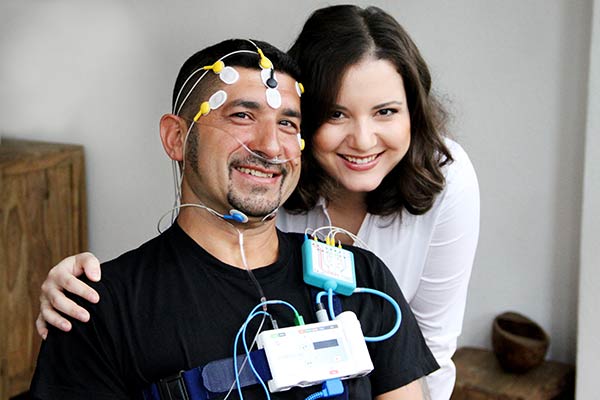
At an appointment to discuss your findings, Dr. Little Elk will explain your nighttime sleep patterns using the real graphics generated by your sleep study on the computer and explaining all the interesting details. This way, you see your sleep profile ‘black on white’ and get it explained in peace. Subsequently, further treatment steps are discussed and planned. Dr. Little Elk strives to answer all your questions calmly and understandably.
If you have any questions, please email us or give us a call.
We wish you a good and restful night.
Yours truly, Samia Little Elk & team
If you are interested in any of these topics, please click the link in the top menu.

Sleep medicine
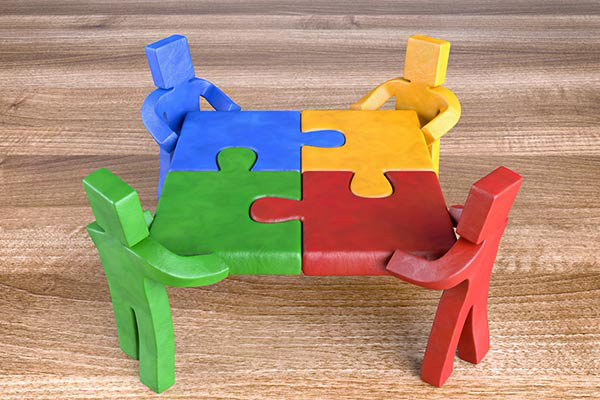
Team

Psychosomatics

Media
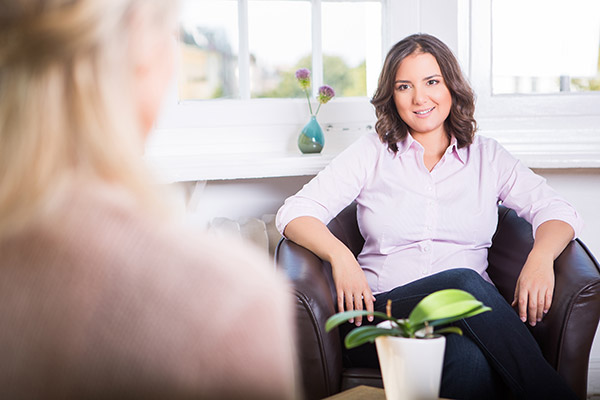
Psychotherapy
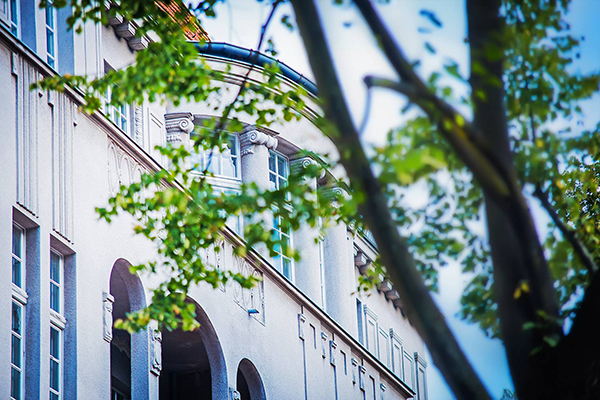
Contact
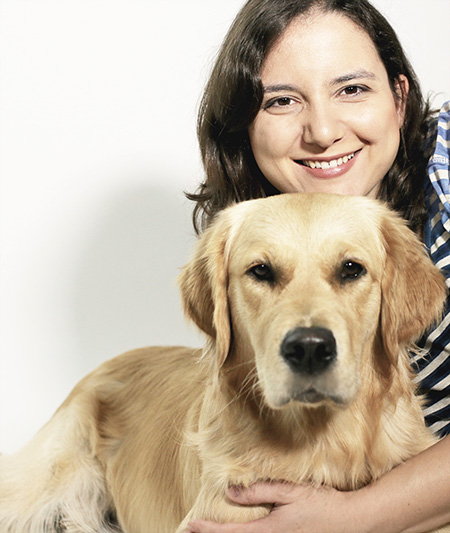
Muffin - therapy dog
Schlafpraxis Berlin
An outpatient practice for sleep medicine,
Psychosomatics & psychotherapy
Niedstr. 22
12159 Berlin
(right on the Friedrich-Wilhelm-Platz)
Tel: 030 – 88 72 81 74
email: info@schlafpraxis-berlin.de
Practice owner:
Dr. med. Samia Little Elk
Privately insured and self-payers
